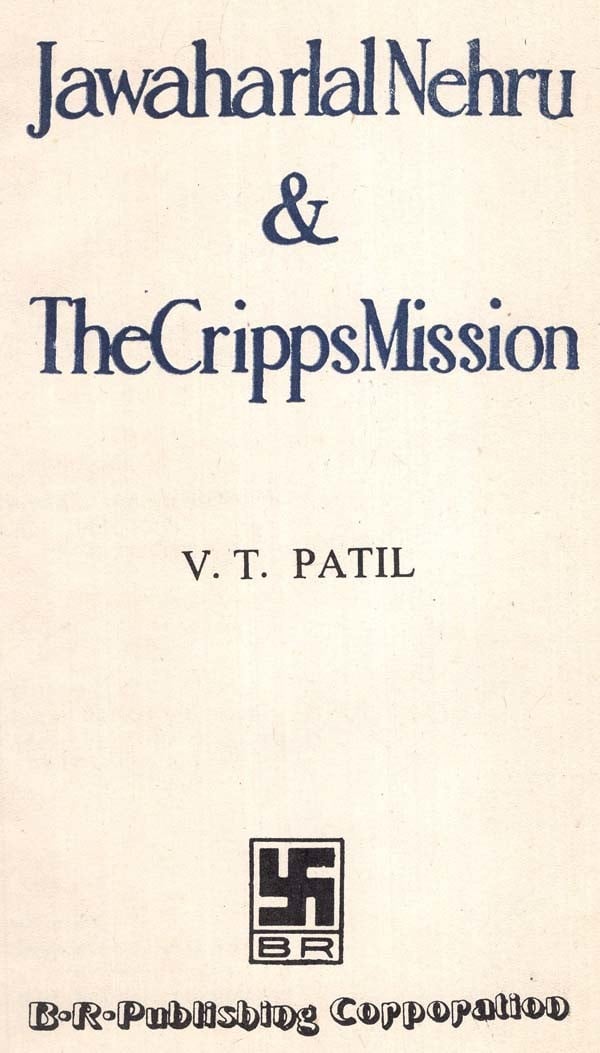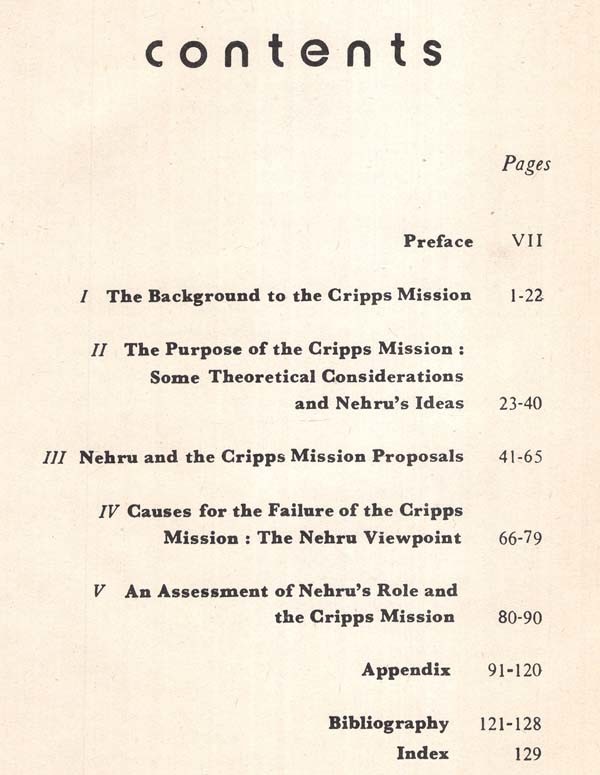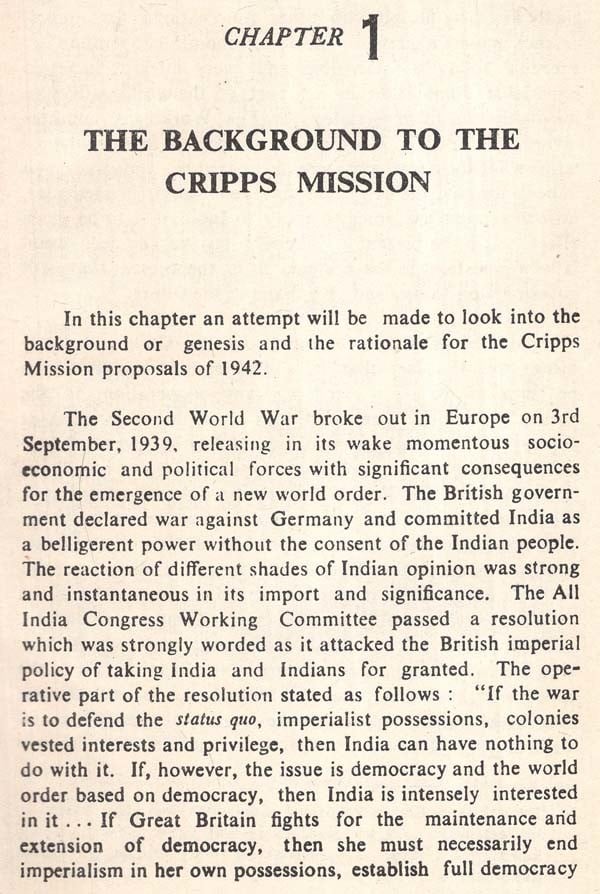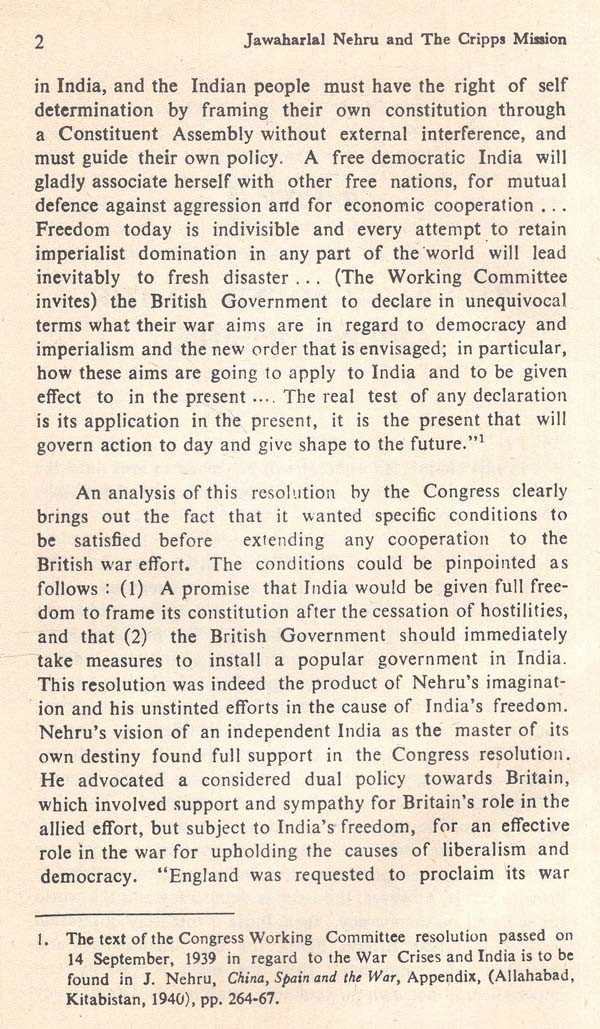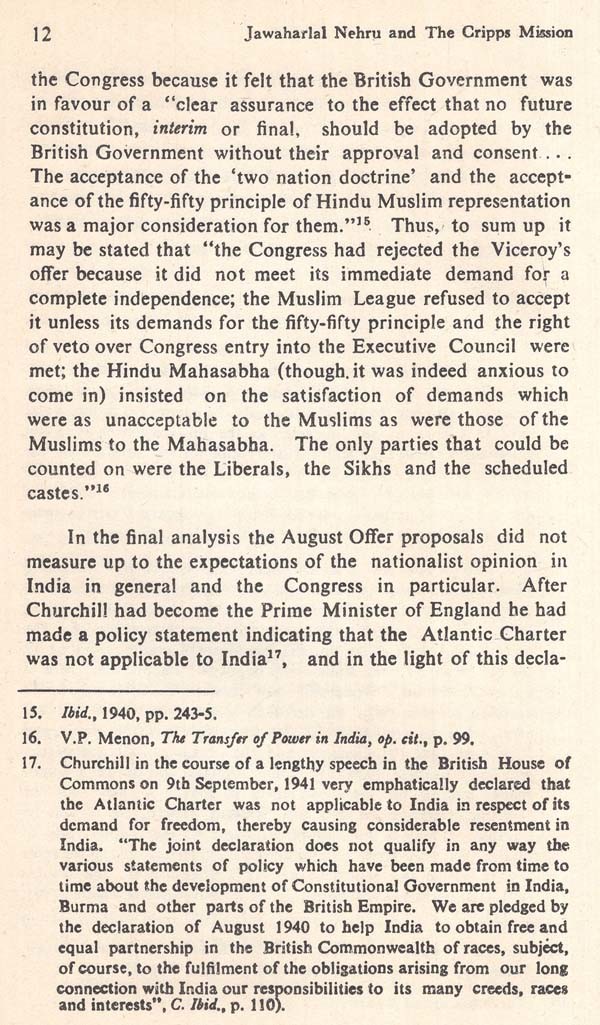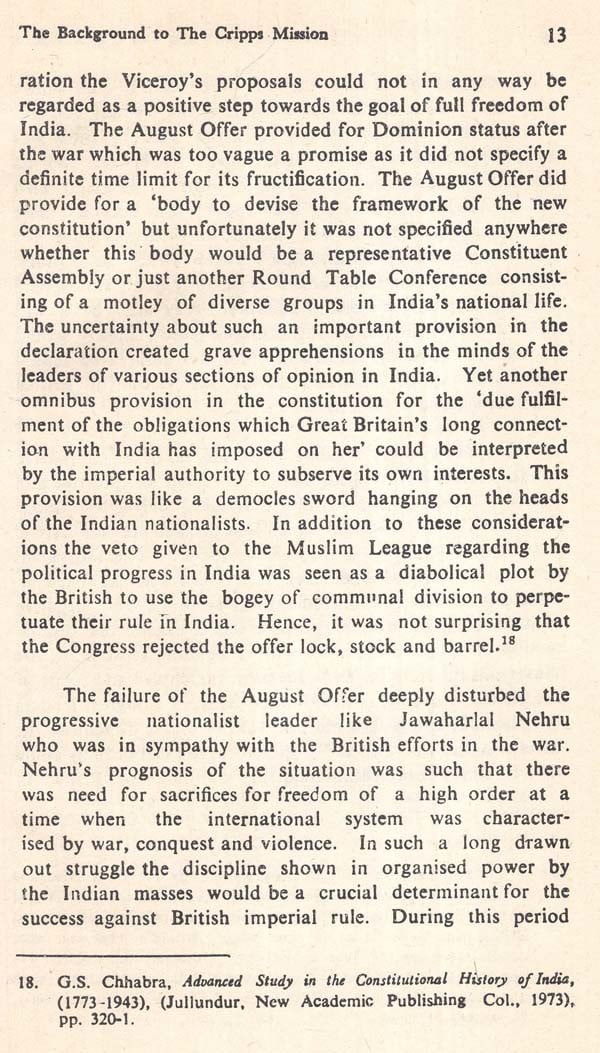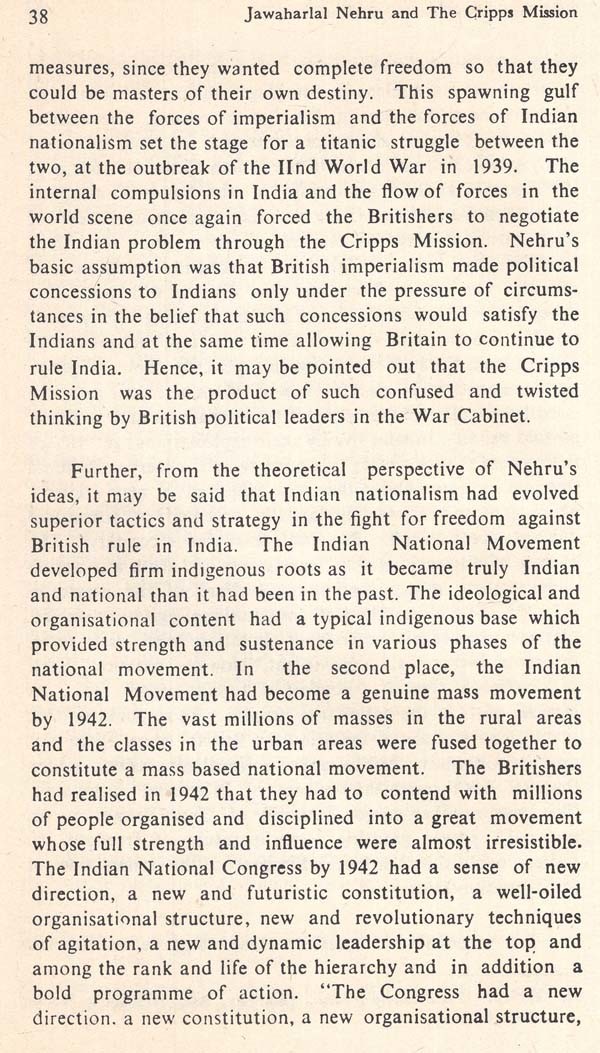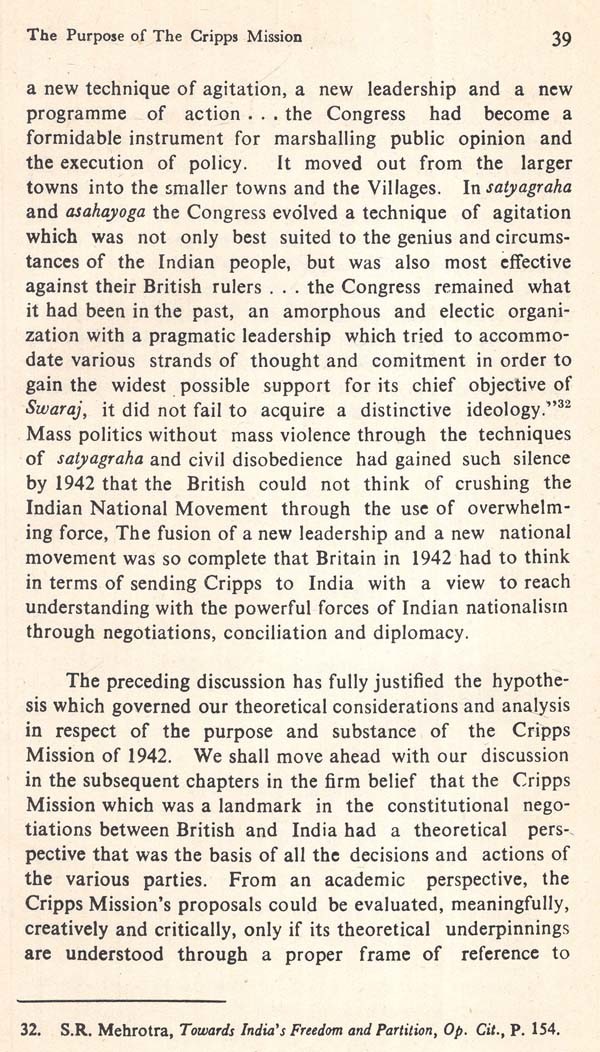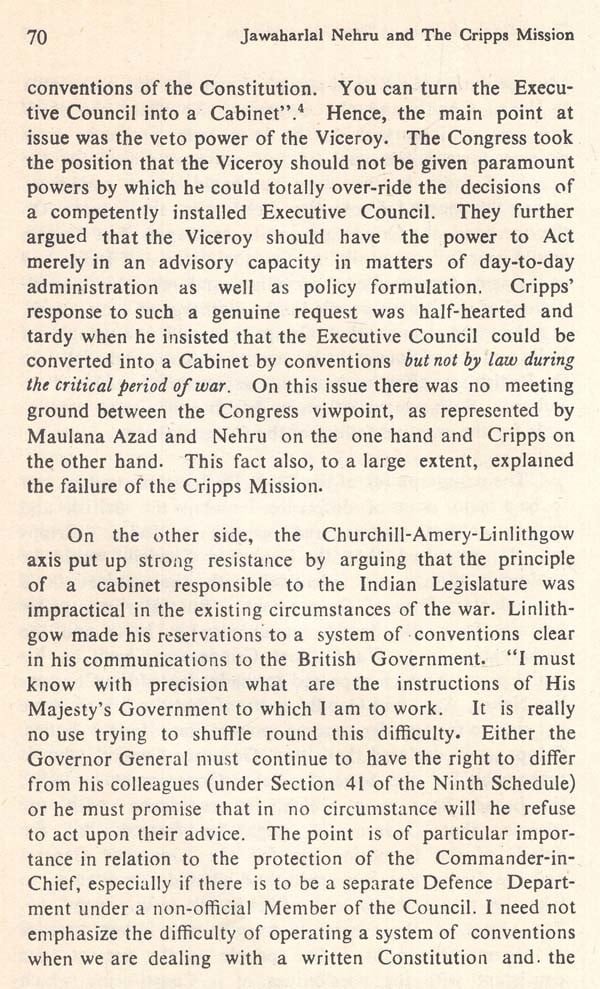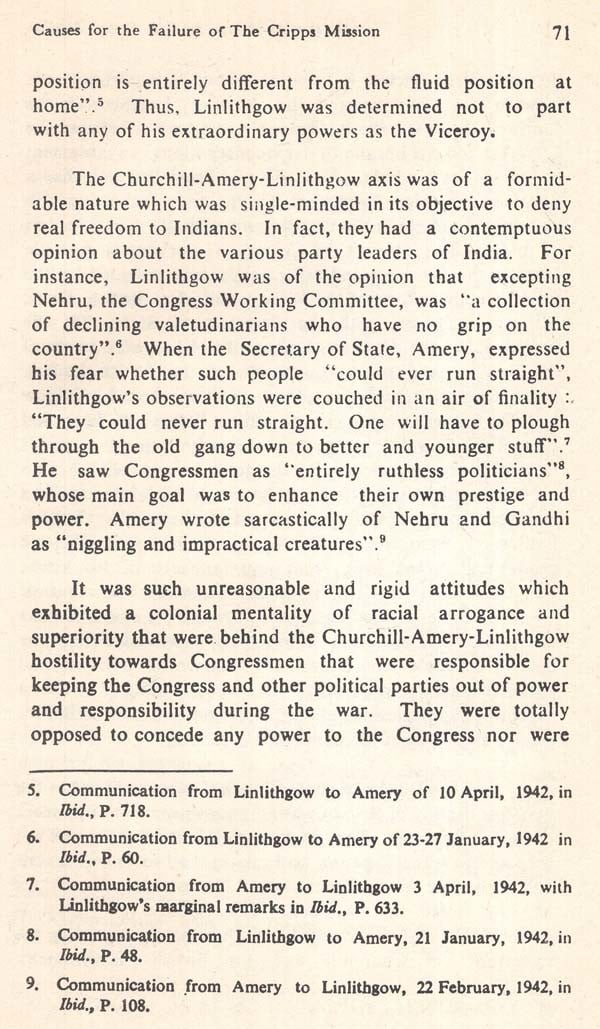
Jawaharlal Nehru & The Cripps Mission (An Old And Rare Book)
Book Specification
| Item Code: | UAR463 |
| Author: | V.T. Patil |
| Publisher: | B.R. Publishing Corporation |
| Language: | English |
| Edition: | 1984 |
| Pages: | 132 |
| Cover: | HARDCOVER |
| Other Details | 8.90 X 5.80 inch |
| Weight | 310 gm |
Book Description
The book is an intensive study of Jawaharlal Nehru's role in the negotiations with the Cripps Mission which visited India in the critical year of 1942. Chiefly based on an interview and extensive examination of official records, papers and documents the book not only explains what constituted the 'Cripps Offer' but also says why the offer was rejected by the Indian National Congress and highlights the specific role of Nehru. The author's analysis is neither biased nor partial but objective and cogent ly argued. Wherever necessary, appropriate citations from primary sources have been provided and yet the book is not larded with one too many quotations which often distract the attention of the readers from the main argument of the book. Divided into five chapters, this book focuses attention on different dimensions of the political problems in India at the time of Cripps Mission and Nehru's role in the negotiations.
Dr. V.T. Patil currently Reader in Political Science, Karnataka University, Dharwad and Honorary Director, Jawaharlal Nehru Institute of Political Studies, is a brilliant scholar and has distinguished academic career. Author of numerous research papers and reviews which have appeared in learned journals like The Indian Journal of Political Science, Gandhi Marg, The Journal of Karnataka University (Social Science, Dr. Patil has various books to his credit. Among his books mention may be made of Nehru and the Freedom Movement, Studies on Gandhi, and A Case Study of a Town Panchayat in Dharwad District.
The initial research for the present study was done in the summer of 1980 at the Nehru Memorial Museum and Library, New Delhi on a University Grants Commission study grant awarded by the Karnatak University. The drafting of the research study was completed sometime in September, 1982. This study was undertaken in the belief that there is no full length study of Jawaharlal Nehru's role in the negotiations with the Cripps Mission in 1942. Here and there stray articles have been published in Indian and foreign journals hinting at the useful role of Nehru, though they do not provide conclusive evidence based on a study of primary sources. The present work on Nehru and the Cripps Mission is primarily based on an intensive and extensive study of official records, papers and documents. In order to provide a stamp of authenticity to the conclusions of the research work, wherever necessary appropriate citations from primary sources are provided in the body of the work.
The book is divided into five chapters focussing on different dimensions of the political problems in India at the time of Cripps Mission and Nehru's role in the negotiations. The first chapter provides a well-reasoned historical back ground to the Cripps Mission. The second chapter looks into the purpose of the Mission by analysing some of the conceptual or theoretical issues involved in it. The third chapter discusses the Cripps Proposals and the negotiations of the leaders of various political parties in India with Cripps. An attempt has been made here to examine Nehru's role in the negotiations as the representative of the Congress Party and as a nationalist leader. The fourth chapter makes an indepth analysis of the causes for failure of the Cripps Mission. Here, Nehru's views and his role are examined.
in order to identify the various forces, factors and personalities responsible for the negative outcome of the Cripps Mission in 1942. The final chapter evaluates the impact and consequences of failure of the Cripps Mission on the future of the freedom struggle in India. In this concluding chapter the question is raised as to whether the success of the Mission could have saved the partition of India in 1947.
The Appendix among others includes the text of the Draft Declaration, the resolutions of the Working Committees of the Indian National Congress, Muslim League, Hindu Mahasabha, etc.
This work would not have been completed but for the excellent research facilities available at the Nehru Memorial Museum and Library, New Delhi. I also take this opportunity to thank the Karnatak University and the Jawaharlal Nehru Institute of Political Studies for providing part of the financial assistance for this work.
I also express my appreciation of Shri A.S. Anikivi for his unstinted co-operation during the course of the work.
**Contents and Sample Pages**
